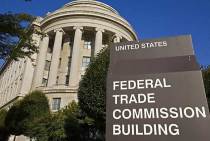 Guest author Jeffrey A. Babener, of Portland, Oregon, is the principal attorney in the law firm of Babener & Associates. For more than 30 years, he has advised leading U.S. and foreign companies in the direct selling industry, including many members of the U.S. Direct Selling Association. He has served as legal advisor to various major direct selling companies, including Avon, Amway, Herbalife, USANA, and Nu Skin. He has lectured and published extensively on direct selling.
Guest author Jeffrey A. Babener, of Portland, Oregon, is the principal attorney in the law firm of Babener & Associates. For more than 30 years, he has advised leading U.S. and foreign companies in the direct selling industry, including many members of the U.S. Direct Selling Association. He has served as legal advisor to various major direct selling companies, including Avon, Amway, Herbalife, USANA, and Nu Skin. He has lectured and published extensively on direct selling.
Jeff is a graduate of the University of Southern California Law School. He is an active member of the State Bars of California and Oregon.
Guest Post by Jeff Babener
FTC and Direct Selling Come to the Table as Stakeholders: H.R. 3409
Everything dies baby, that’s a fact.
But maybe everything that dies someday comes back.
Bruce Springsteen, Atlantic City
What a difference a year makes. In a well-received presentation to the November 2017 DSA Regulatory Conference, FTC Acting Chairperson, Maureen Ohlhausen, struck a totally different tone in regard to forward looking FTC enforcement policy on direct selling, contrasted with the October 2016 presentation of former FTC Chairperson, Edith Ramirez.
 The Contrasting Messages:
The Contrasting Messages:
2016: Ramirez: We are the regulator, new rules to live by, just live with it, it’s our way or the highway…
2017: Ohlhausen: We are all in this together… We are all stakeholders… Let’s work together for the benefit of both, fostering the success of an entrepreneurial and small business direct selling industry, and protecting the security of consumers.
Came floating on a lemon leaf
Flying in on a jasmine wind
The Band’s Visit, Broadway Show, 2017
What happened? Why the rapprochement? Why the goodwill? Will it take hold? Well, it’s a guess, but there are many factors:
(1) The former chairperson “termed out.”
(2) A presidential election swept in with an anti-regulatory, pro-growth, pro-entrepreneurial and small business message.
(3) The going forward composition of the FTC Commission will be Republican and more likely to be sensitive to the concerns of the “regulated.”
(4) Importantly, the previous FTC aggressive position pushed the industry to seek certainty in their business that could only be achieved by federal anti-pyramid legislation firmly rooted in long standing case authority rather than arbitrary administrative enforcement, i.e., the bi-partisan H.R. 3409 Anti-Pyramid bill was introduced and gaining momentum.
(5) Finally, the FTC may have realized that it had been heavy handed in recently announced enforcement positions.
Point/Counter-Point: Contrasting Punch Lists
It is worthwhile to contrast the “punch lists” of presentations and positions by the 2016 Ramirez and the 2017 Ohlhausen:
Former Chairperson Ramirez’s presentation followed the successful FTC prosecution of FTC v. Vemma and the overly rigid terms of the FTC vs. Herbalife settlement. Although very well-articulated, the presentation warned of potential future FTC guidance that was not rooted in 50 years of case authority, but rather in the newly adopted positions of the Chairperson and FTC staff… an enforcement policy that that would require a complete overhaul of the model of many leading direct selling companies:
(1) She renounced use of the famous Amway Safeguards Standard, adopted in the landmark FTC case, In re Amway, 1979 as being irrelevant, overrated and not really relied on by courts in pyramid cases. (an unfortunate misinterpretation of case law).
(2) She redefined the famous Koscot Standard to require compensation to upline to be based on sales to nonparticipant retail customers rather than based upon Koscot’s language—ie., commissions must be based on sales to “ultimate users”, effectively reclassifying distributor users as “second class” “ultimate users.”
(3) She pivoted away from a legal analysis in the most recent BurnLounge case, which demanded, in pyramid cases, a factual analysis of the “primary motivation” test in which a court asks “what is the primary motivation for distributors when they make purchases”… instead migrating to a punch list of inflexible operating restrictions imposed on Herbalife in its recent settlement.
(4) She essentially attempted to create a new legal standard, the “percentages test”, an arbitrary new rule in which upline distributors would be limited to receive commission credit for only one-third of sales volume attributed to personal use by downline distributors, whether or not such purchases were reasonable in quantity and for actual use by the distributor “ultimate user.”
(5) She announced that a long time practice of almost all leading direct selling companies, autoship to distributors, should, effectively, be prohibited.
(6) She pivoted away from a well-established component of leading direct selling programs, stating that monthly activity volume requirements may not include any purchases by distributors.
(7) She asserted that the long time practice of established direct selling companies, tracking of performance activity, connected to wholesale purchasing, should be banned.
Acting Chairperson Ohlhausen, on the other hand took the train in a totally different direction, rooting a going forward FTC policy on long established case authority and principles of government/industry collaboration rather than top down directives.
different direction, rooting a going forward FTC policy on long established case authority and principles of government/industry collaboration rather than top down directives.
As acting chairperson of the FTC, Chairperson Olhausen underscored her goals for the direct selling industry… Gone were threats to upend long standing direct selling models:
(1) One of her overriding goals, she said, “was to increase the FTC’s support of small business and entrepreneurs.”
(2) She noted: “I recognize that at the heart of the direct selling model are entrepreneurs—those men and women who are out there innovating, taking risks, and trying to generate value.”
(3) She stressed that the direct selling model offers “a lot” to entrepreneurs:
* Low startup costs;
* Administrative and logistical support from their companies;
* Promotion of efficiencies in the marketplace for friends and families and consumers;
* Varied and diverse products and services;
* Innovations in selling using internet and social media and technology.
(4) She pointed out the importance of flexibility in regulation by the FTC and that it is important that the FTC stay away from rigid application of “one size fits all” regulatory enforcement, looking instead on “our case-by-case” enforcement process of “specific harm” in that particular case.
(5) Consistent with the views of leading companies in the direct selling industry, she applauded industry self-regulation with government oversight as a backup, while at the same time emphasizing that government enforcement powers should be “robust and judicious.” Why judicious? Said Ohlhausen, “Over-zealous government involvement can diminish industry members’ participation in the self-regulatory system, which reduces the system’s effectiveness. Businesses that believe government action is inevitable will not participate or invest in self-regulation.” How true, and what a great prelude to cooperation between the FTC and the direct selling industry.
(6) Chairperson Ohlhausen took the time to lay out several “bright line” markers intended to serve as FTC’s down payment on a cooperative relationship with direct selling:
* “The FTC and the DSA have a good working relationship, and for that, I thank you. We’ll continue to cultivate that relationship…”
* The FTC took special care to understand the dynamics of direct selling, and exempted multilevel marketing programs from its recently updated Business Opportunity Rule.
* Pivoting from Chairperson Ramirez’s comments that the Herbalife settlement terms may be the basis of future FTC guidance or rules, Chairperson Ohlhausen stated unequivocally that settlements and orders do not apply to the entire industry: “The answer to that question is ‘No’. Orders arising from FTC settlements are binding only on the entities and individuals identified in the order. The orders may of course, provide industry participants with additional data points on, for example, business structures that the FTC believes comply with the law. But that’s not to say the structures outlined in those orders are the only way the FTC believes companies can comply.”*
* Does the FTC assume or believe that every multi-level company is a pyramid scheme? Responded Ohlhausen, “The answer to that question is also ‘No’… We recognize the direct selling model has a lot to offer the marketplace and consumers.”
* After hearing from Chairperson Ramirez in 2016, what the industry heard, or inferred, was that the FTC was abandoning longstanding case authority for its own “punch list” of what does or does not fit within legitimate multilevel marketing vs. pyramid scheme. Not so fast, declared Chairperson Ohlhausen, i.e., the FTC is going back to basics… a refreshing comment from the industry’s perspective and one that is the driving force behind H.R. 3409. Said the Chairperson, “At the risk of getting into too much legalese, the FTC described an unlawful pyramid scheme in our case against Koscot Interplanetary, Inc. back in 1975. Most courts have adopted that description and it’s the description we have used in our recent cases. (Author’s comment: many industry observers might take exception to the observation that this approach has been the guiding FTC enforcement position in recent cases.) Under that description, unlawful multi-level marketing structures are “characterized by the payment of money to the company in return for which they receive (1) the right to sell a product and (2) the right to receive, in return for recruiting participants into the program, rewards which are unrelated to the sale of the product to ultimate users.” (emphasis added)” Citing, In re Koscot Interplanetary, Inc., 86 F.T.C. 1106, 1180 (1975).
* And realizing that “there are a lot of nuances” packed in the Koscot Standard and analysis of legitimacy vs. pyramid, Chairperson Ohlhausen, importantly, noted, “I have instructed the FTC staff to meet with the various stakeholders, including the DSA, to discuss those nuances. We anticipate applying the information we’ve gained to issue future guidance, as well as to guide future law enforcement decisions.”
H.R. 3409: An Opportunity for both the FTC and the Direct Selling Industry
And now… an opportunity for the FTC and direct selling Industry to work together for certainty that they both deserve. A bi-partisan bill, H.R. 3409, the Anti-Pyramid Promotional Scheme Act of 2017.
The stated purpose of H.R. 3409: To amend the Federal Trade Commission Act to prohibit pyramid promotional schemes and to ensure that compensation is not based upon recruitment of participants into a plan or operation, but on sales to individuals who use and consume the products or services sold, and for other purposes.
It is the first of its kind at the federal level. Interestingly, anti-pyramid statutes have been enacted in almost all states for half a century. And, anti-pyramid laws, similar to the current federal bill, have been adopted in more than 20 states, with almost identical legislation adopted in more than a dozen states.
H.R. 3409 is the “real thing” and it slams abusive pyramid scams. The core of the legislation, is rooted in a 50 year line of cases that emanate from that case, Koscot, that Chairperson Ohlhausen describes as the backbone of “going forward” FTC policy, a rule that commissions paid to distributors must be based on sales to “ultimate users.” Bottom line: the bill would finally give the industry certainty that is found in the line of cases from Koscot to Amway to BurnLounge that “ultimate users” include non-participant customers as well as participants who purchase in reasonable amounts for actual personal or family use. Language in the bill lines up perfectly with the established standard of the Koscot case.
Point by point, H.R. 3409 satisfies the goals of both the case law, Chairperson Ohlhausen’s reliance upon Koscot and industry standards that have been adopted long since in so many states. The bill:
(1) Condemns inventory loading;
(2) Calls out as “evil” pyramid headhunting recruitment schemes;
(3) Per the Koscot case, forbids payment of commissions or rewards that are unrelated or not based on sale of products and services to the “ultimate consumer;”
(4) Absolutely rejects programs in which distributor product purchases are made in unreasonable amounts, either for resale or actual personal and family use; and
(5) Demands, as a condition of legitimacy that companies adopt a repurchase policy in which terminating distributors will be refunded for returned product inventory, in resalable condition, that has been purchased within 12 months of termination.
All of this is not to say that the direct selling industry does not take self-regulation and protection of the consumer very seriously. The Direct Selling Association Ethics Code is replete with consumer protections, from prohibitions on inventory loading to unsubstantiated earnings claims to mandates of inventory buyback from terminating distributors. And leading members of the industry are already implementing technology solutions to track the segmentation of distributors and non-distributor users of products. In addition, many leading companies have instituted reclassification programs in which distributors who use product regularly, but do not really “work the opportunity,” can be reclassified into “preferred customer” programs that carry favorable pricing and a host of consumer benefits and incentives. These efforts at self-regulation will continue, regardless of legislation, and are the type lauded by Chairperson Ohlhausen. To some extent, such undertakings are a “down payment” on reciprocal cooperation by the FTC.
Carpe Diem… Seize the Day… We Are All Stakeholders
Just as Chairperson Ohlhausen has invited all stakeholders to the table to discuss how to implement the nuances of the Koscot line of cases, the direct selling industry should invite the FTC, as a stakeholder, to participate in the development and enactment of H.R. 3409.
Why is H.R. 3409 a great discussion topic for these “stakeholders?” Well, of course, cooperation and collaboration and good will are good goals. But those lofty goals do not produce certainty and predictability if there is no objective standard or rule of law.
No one will argue with the fact that FTC staffs change; that, over time, FTC commissioners change; and that there is a long history of FTC vacillation on policy and enforcement. It is well past time for some objective guidance.
Will this dialogue go anywhere? Can the parties achieve some certainty for this channel of distribution? Hard to say… Hopefully, yes. We have been down this road before. But it is important to remember, as Prime Minister Indira Gandhi once said, “you cannot shake hands with a clenched fist.”
SHARE THIS:

Leave a Reply